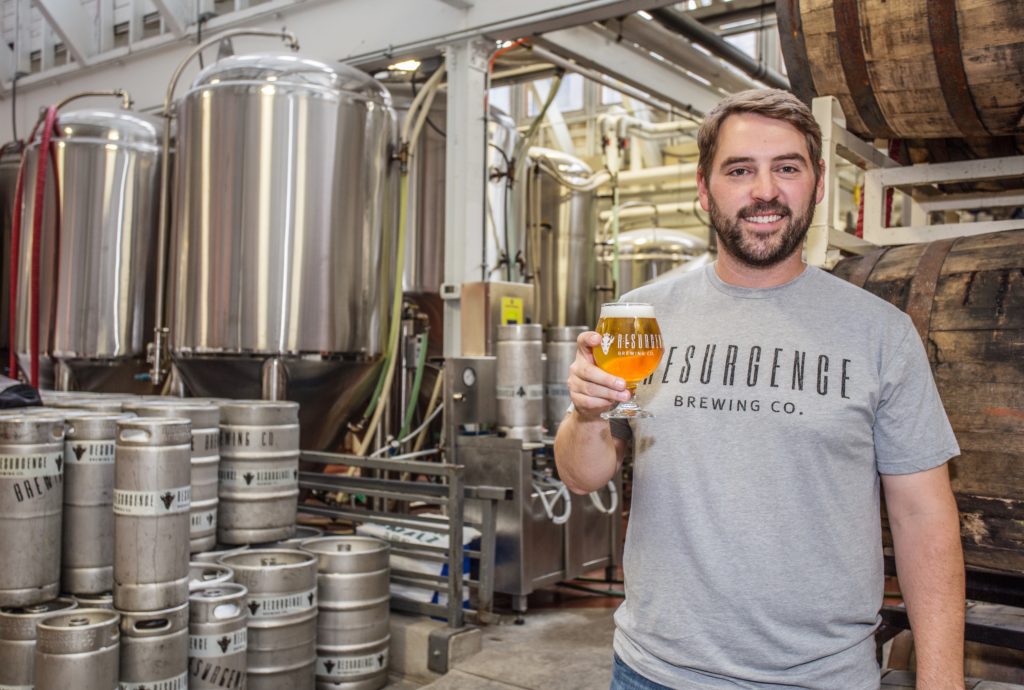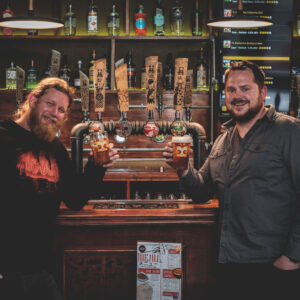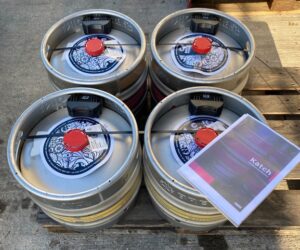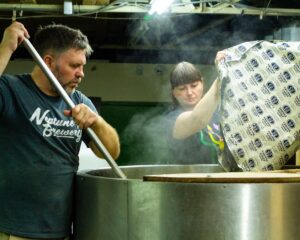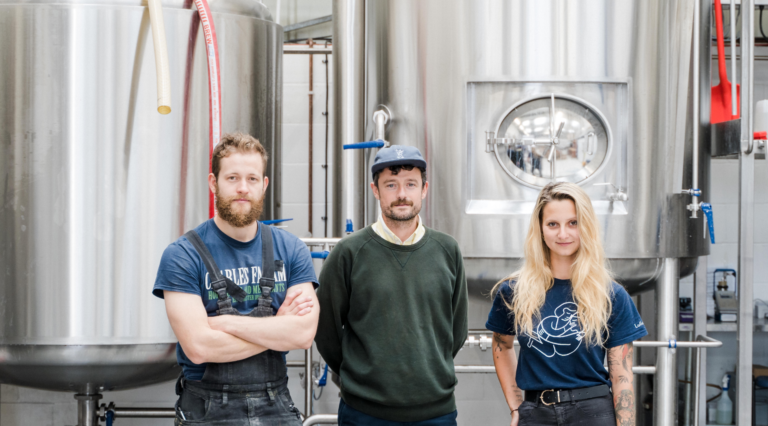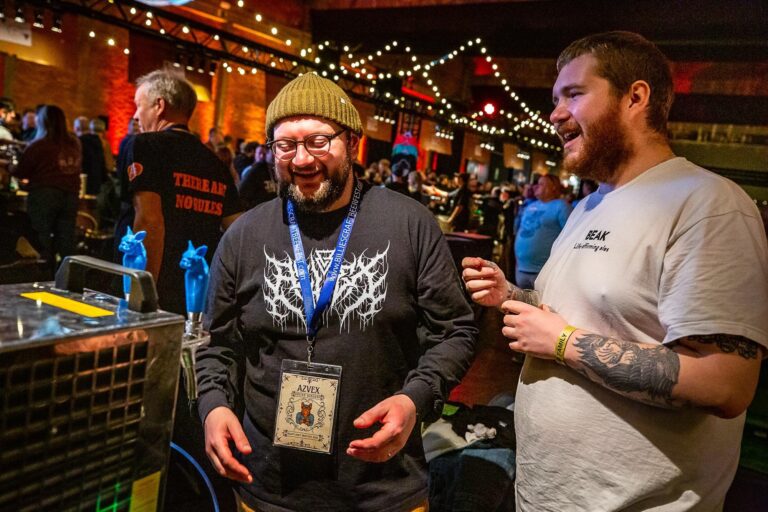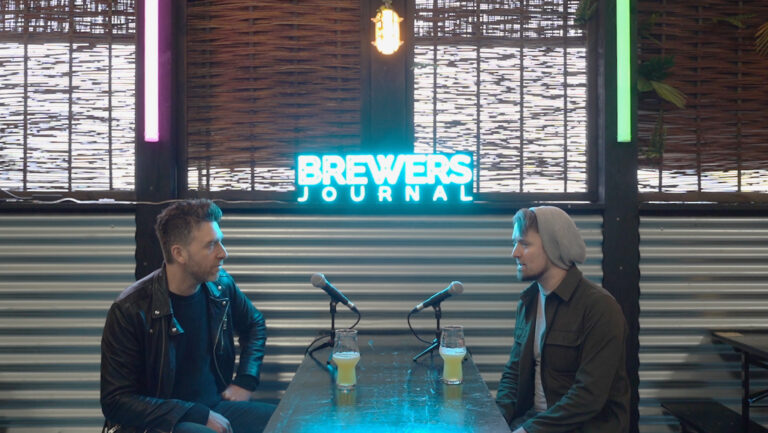Between its American Falls and the Canadian Horseshoe Falls, the equivalent of nearly 150 million Canadian pints flow every second across the world-famous Niagara Falls. It is rather fitting then that in downtown Buffalo, a short 20 or so miles south, the beer is flowing better than ever.
Home to more than one million in its metropolitan area, Buffalo has a rich history and heritage. Known as the ‘City of Light’ owing to the fact that it was America’s first city to enjoy electric street lights, hydroelectric power, thanks to the falls, has played a big role in Buffalo’s identity.
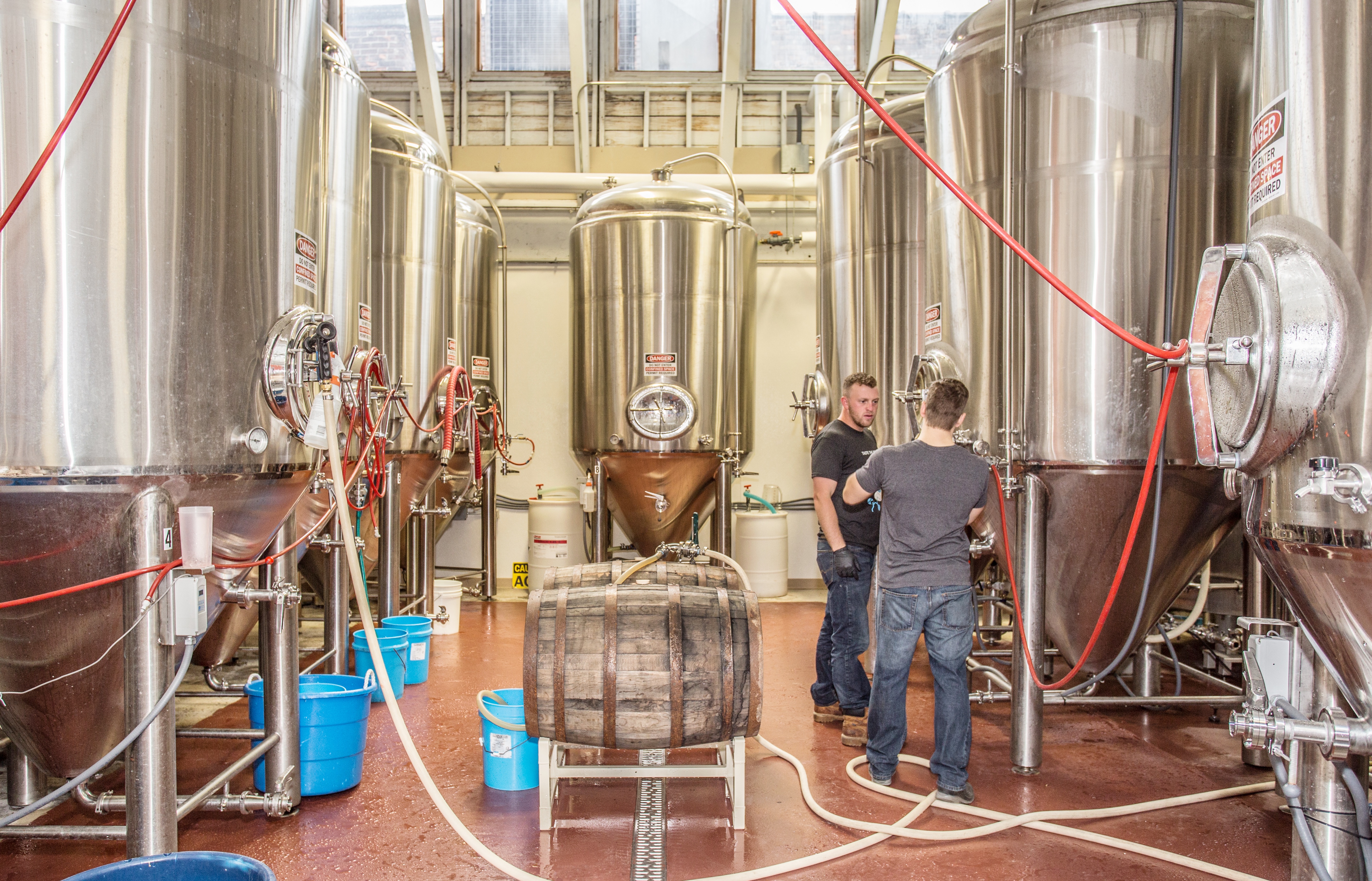
Resurgence: “People are coming back to the city, the scene, the economy”
But for many decades, rust-belt Buffalo has been in something of an industrial decline. That is, until now. A buoyant mix of culture, investment, affordable housing and hi-tech industry is helping regenerate Buffalo, all while the city’s impressive architectural heritage remains in tact.
And like so many other cities and towns across the globe, the brewing industry is proving to be a key component in the growth and rebirth of such areas. With less than a handful in operation three years ago, there is now close to 30. With that showing no sign of slowing down either, Brewers Journal caught up with some of the key breweries in the field.
“We are seeing a resurgence, it’s a nod to what is going on in Buffalo as a whole. People are coming back to the city, the scene, the economy,” explains Jeff Ware, owner of the fittingly-named Resurgence Brewing Co. “Beer is definitely helping. People like living near a brewery as it’s a communal space and a glimpse into what is going on in a neighbourhood. People that aren’t used to the area visit us to get a flavour of what is happening. It gives people a reason to go into certain areas, which is only a good thing.”
Resurgence Brewing Company, located at 1250 Niagara St, opened its doors in June of 2014. Ware and his team don’t shy away from their dedication to furthering the resurgence of the local economy through beer as an economic and social driver, starting the taproom and biergarten on the West Side of Buffalo for that reason.
Since its inception, the brewery has been dedicated to creating unique, creative beers with iconic flavours, including Sponge Candy Stout, Loganberry Wit, Blood Orange Saison, and its flagship Resurgence IPA.
“We like experimenting, trying things out of the box, and blending the lines a little bit. We are probably not the greatest at making beer that wins awards as you have to adhere strictly to style. Our IPAs are hazy, not crystal clear,” he says. “We are probably leading the charge when it comes to experimental beers but as a region, it has really come into its own in recent years. I would say the quality is up there that’s for sure.”
Ware says the drinking culture in Buffalo is more focused on quality, rather than quantity. That people will spend extra on a beer them deem to be worth it. But he also believes that breweries have an important job on their hands when it comes to educating the consumer, something that will help drive growth.
“When we opened there were only two or three breweries. Now there’s close to ten times that. I believe there is still a huge opportunity for education, though, and the others agree with that. It’s about working together and getting the word out. Come here, and you can visit multiple breweries and experience everyone’s own take on good beer. It’s about variety and diversity. It’s important.”
Like so many breweries, space proves to be an issue for Resurgence. “We have maxed it out,” says Ware. “It took us 15 months to hit that point when we anticipated it would take five years. And as we get better and the economy improves, it ends up becoming a more competitive market so you need to stay on top. Saturation will hit at some point and people will work even harder as a result, which is only good news for drinkers. But for us, stores only have so much space, as do bars. So we have to stay alert.”
With that in mind, Resurgence Brewing Company recently signed with Sanzo Beverage Company, Inc., a Southern Tier-based distributor. The partnership allows Resurgence to broaden its distribution throughout Western New York, including markets where the brand had not previously been sold, such as Allegany, Orleans, Wyoming and Cattaraugus counties.

Resurgence has worked with Try-It Distributing for the past year to sell into Buffalo-area markets on a larger scale than the brewery was able to reach on its own. That relationship allowed Resurgence to expand throughout the Buffalo-Niagara market.
Through working with Try-It, Resurgence has been able to sell into a wide range of establishments, with the help of the distributor’s staff of salespeople and the support of the larger company’s team. Working with Sanzo will help RBC do the same in the Southern Tier counties.
“We’re excited to partner with the Sanzo team to bring our beer into the greater WNY region, and offer craft beer lovers the beer experience we’ve been bringing to the Buffalo area for a couple of years now,” explains Ware. “Since we first opened our doors on Niagara Street over two years ago, we’ve worked hard to bring the experience of our beer to people who appreciate quality, carefully crafted brews. Partnering with distributors helps us do that to a larger group of people than we could on our own.”
Located at 840 Seneca Street, Flying Bison Brewing Company is a reference point for many breweries in Buffalo. In 2000, it was the first standalone brewery to open its doors in the city since Iroquois Brewing ceased trading way back in 1972.
Started by Phil Internicola and Tim Herzog, along with 25 individual investors, Flying Bison is inspired, in part, by the city’s strong aviation manufacturing. It’s only right then that the brewery that started as a means to bring brewing back to Buffalo, has gone on to inspire so many to return to, or start out in, the industry.
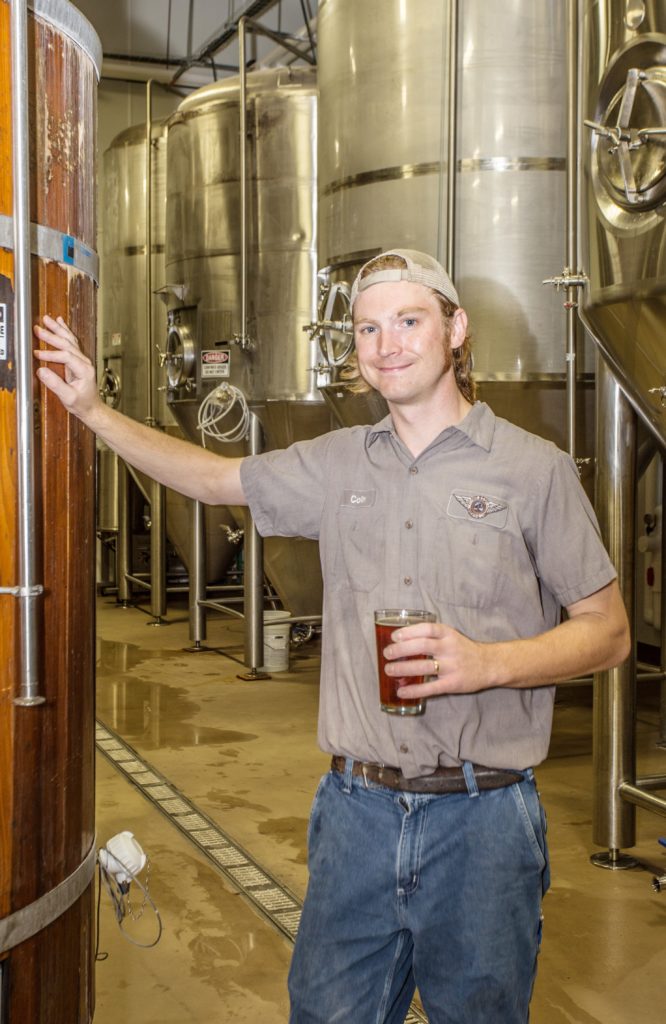
Flying Bison’s Colin Herzog
One such individual is Colin Herzog, a brewer at Flying Bison and son of founder Tim. Colin had initially set out to become a journalist before the brewing cause came calling. And he hasn’t looked back.
“Beer in Buffalo is very much a social affair. It can be during a post-work gathering, a family celebration, or just over a quiet drink. Or it can be the beer geeks hunting down their new stash,” he laughs.
“We are a rust belt at heart, but at the same time surrounded by lots of countryside so it’s a good mix. I see that in the diversity of the people that enjoy our beer, and the beer of Buffalo itself.”
While Herzog believes there is little end in sight for the “IPA craze” just yet, he remains very proud of the brewery’s Buffalo Lager which always flies out, he says. With new fermenters in and conditioning capacity increased during 2016, Herzog expects wild beers to become even more commonplace over the coming years.
“It’ll become more approachable, not always stronger but long-aged. We are doing that, getting our feet wet. It’s important to cover your basis and to challenge yourselves,” he concludes.
“Oh my goodness, this year feels like it has been a lot longer than one, maybe five!” enthuses Matt Khan, co-founder and president of Big Ditch, located on 55 East Huron St. But thankfully for Khan and his team, it is meant in a wholly-positive way.
“We started 2016 with two goals. One was to expand the brewery as we were hitting capacity and we wanted to keep growing,” he says. “We were also only selling beer on draught so we looked at canning. We were making good beer, along with running a nice taproom, so we wanted to make more of an impact out of our market and create a buzz. And I think we accomplished that.”
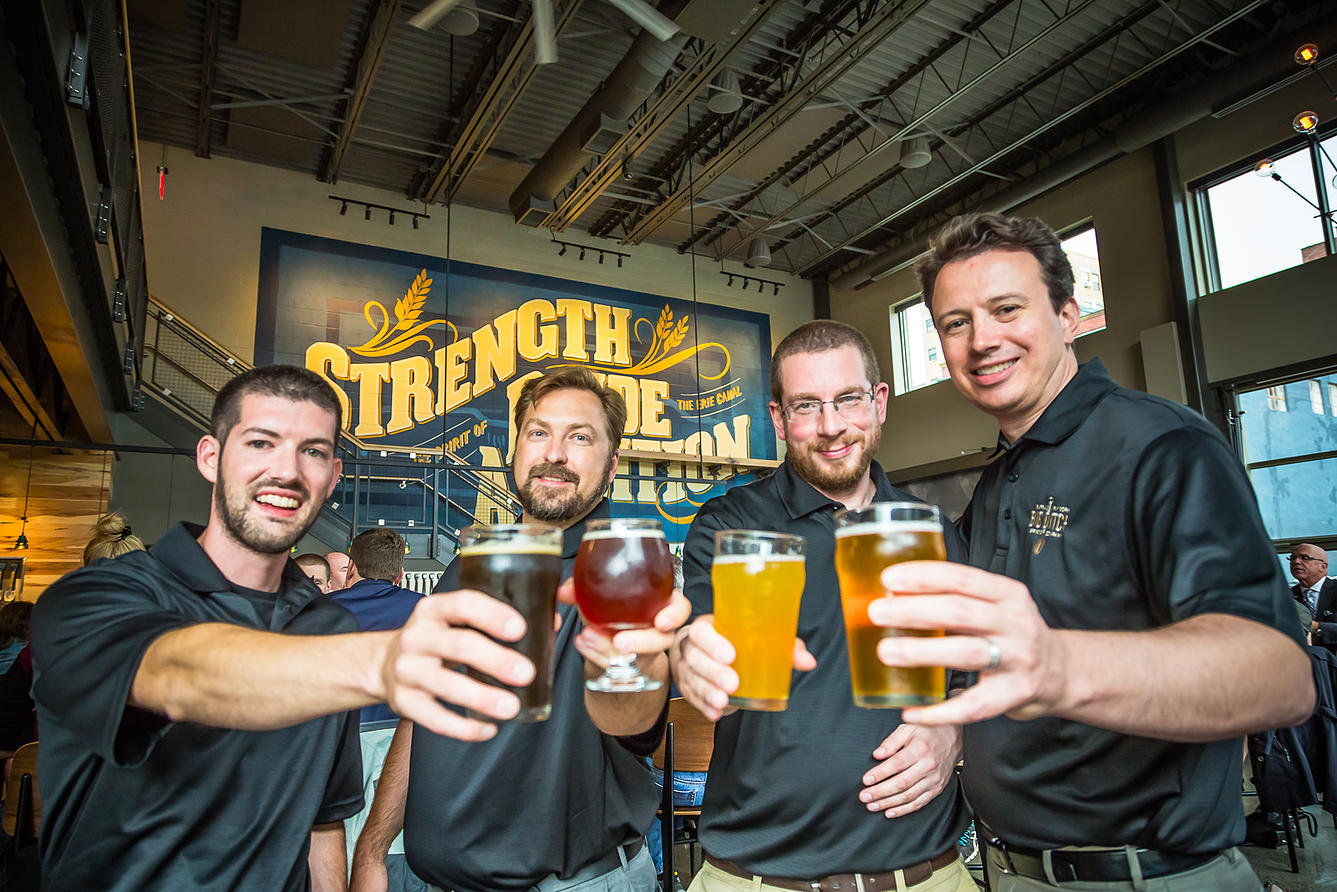
The team at Big Ditch
And those words are backed up. They tripled capacity, increased its brewing schedule and added a CASK canning line. Big Ditch also triumphed in the most recent Tap NY awards, winning the accolade for best craft brewery in New York state in a category contested by 120 other breweries. No small feat.
“It was a ‘Holy Crap’ moment, we were kinda shocked,” he explains. “We provided all of the samples expected of us and tried loads of new beers entered into the awards. All we could think was that there is a lot of very good beer being made in NY. We were hopeful to make even an impact, but expected nothing. So it has been very nice,” says Khan.
“The award helps, but it’s more recognition of what we do. At the end of the day, the proof is in the beer. One thing we often hear when people are drinking our beer at the taproom is that the environment doesn’t remind them of Buffalo either, which is a backhanded compliment to Buffalo I suppose. It’s positive.”
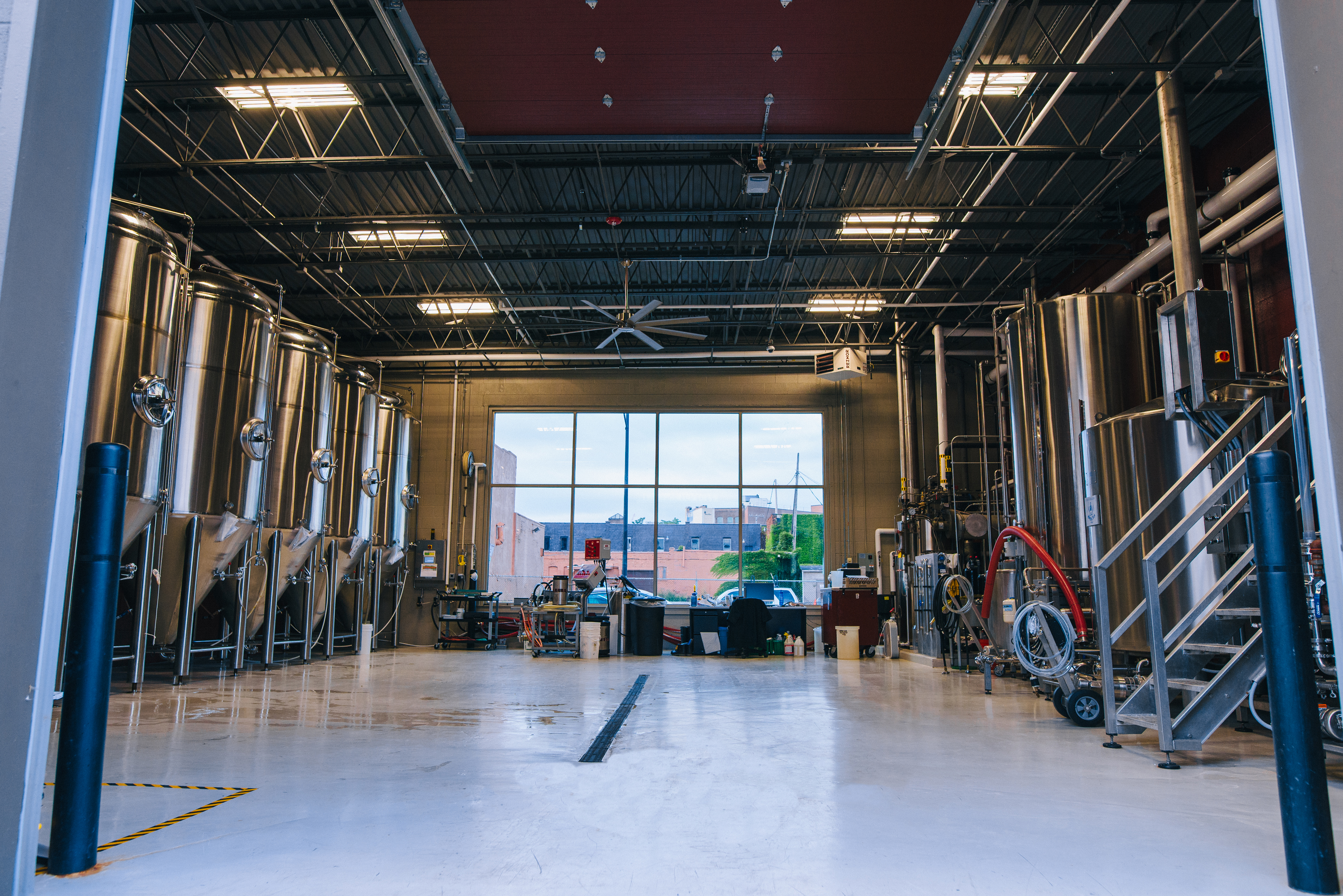
Named after the working name of the Erie Canal, the historic waterway that altered the trajectory of Buffalo and the Great Lakes region forever, all of Big Ditch’s brews are produced on site on its Criveller brewhouse that was manufactured in Niagara Falls, Ontario.
The Big Ditch Brewing Company journey started with Matt Kahn and Corey Catalano, two aspiring scientists and beer lovers, that were working in a biotech lab in early 2011, and wanted to start a new business for themselves. They used a food-grade bucket—otherwise destined for the trash—as their first fermenter, and they created new beers right then and there in a garage.
Over the next two years they met Wes Froebel, a previous co-owner of other breweries, who was also interested in starting a new brewery project. The trio’s pursuit of a building to house their brewery intersected with Iskalo Development Corp’s redevelopment of a former Verizon fleet maintenance facility at Ellicott and Huron Streets in downtown Buffalo. The two groups worked intently for more than a year planning the brewery and tap room, with Paul Iskalo joining the Big Ditch team as its principal investor.
Big Ditch opened for business in October of 2014 with the Tap Room opening in the summer of 2015, serving Big Ditch beers alongside fresh food in an enviable downtown setting.
According to Khan, the brewing scene in Buffalo is a healthy one and something that has recovered from the malaise it was in from the 70’s until the opening of Flying Bison 17 years ago. “We have a good collection, it’s collaborative, it’s not competitive. The scene is new, it’s growing, and it’s moving in right direction,” he says.
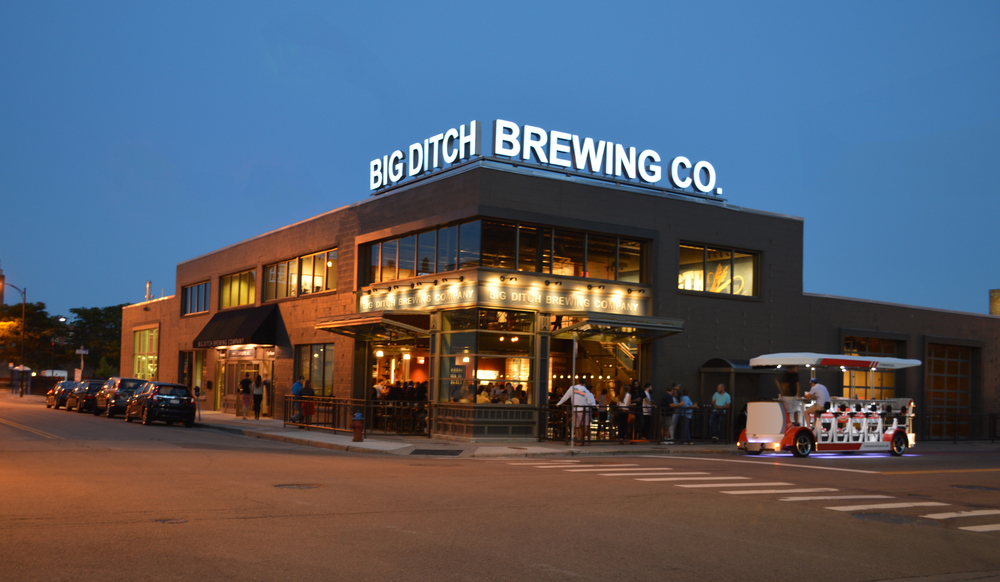
Khan adds: “Buffalo has industrial roots, it’s a rust belt city. We have seen decline in population and employment for the last 20-30 years but that has changed. We are seeing development and I think brewing has helped with that.
“I remember parking across this building we have before hand thinking there’s nothing really here. But the state has invested in the area, and we are seeing growth, which is great. Walk a block and you’ll see another restaurant or a bar, it has life and has become a new district.”
And it’s that newness, coupled with the team’s eye for detail and the meticulous, that ensures no stone is left unturned in their brewing operation.
“Everything we do is about quality control. Quality should be above everything you do, and we bring that attitude to what we do. You cannot afford to have bad experience, it’ll ruin it forever. Previous jobs of mine involved bar cleaning, inspecting and validating pharmaceutical tanks, that grounding helps,” he says. “While Corey (Catalano) worked in a cleanroom for five years, so he knows a lot about how to make sure what goes out meets our rigorous spec. We didn’t work in brewing before now, but we’ve done this for a long time, and we came at it differently.”
Going forward, Khan admits that Buffalo is “still all about IPAs” with its own 7% IPA comprising 70% of its production, but he still wants to push sour beers despite Buffalo, in his opinion, “not really getting them”.
And despite a hectic, but positive, 2016, Khan and the team have no plans to rest on their laurels.
“By expanding, we have grown really quickly. We only opened two years ago, and we are already making ten times more beer than that point. We are taking what we have and making it better. We want to become more efficient and to grow sales,” he says. “We are also looking at new markets, maybe outside of our own area. Looking at in state and more out of Buffalo. By now, we’ve had beer in places like Rochester and we can build on that and work towards it. After that, who knows?”
Elsewhere, Woodcock Brothers Brewery on 638 Lake Street, Wilson, NY is the brainchild of “two brothers and their wives. One old cold storage building in a historic town. And a lot of good beer”.
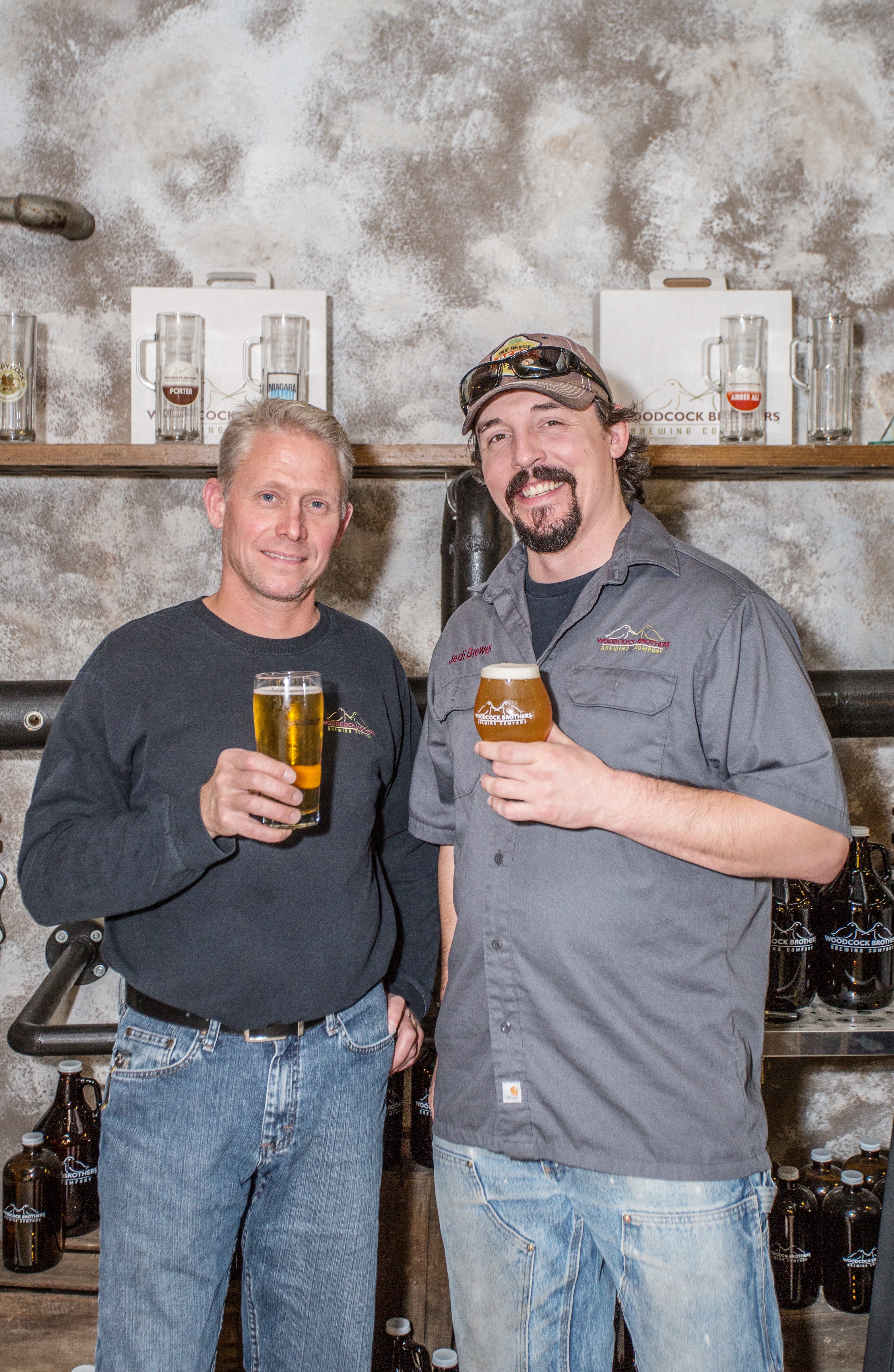
Woodcock Brothers
They explain: “This pretty much sums up who we are. We work hard to bring you great beer, great food and a great time in our beautiful building located in Wilson, New York. We’re the first brewery in Niagara County to make our beer on site and serve it here too.
“Cozy up to our bar and check out our brew floor below. We also serve a number of wines from local wineries in the area. So if you’re on the wine trail and want a taste of something different, or you’re traveling the area in search of something to quench your thirst, come visit us! You won’t be sorry!”
The final stop on the tour of Buffalo took Brewers Journal to Community Beer Works, a nanobrewery set up by a group of friends. We met Ethan Fox, who is one of the founders of Community Beer Works and works as ‘president & chief instigator’ with a goal of bringing beer back to Buffalo.
“Brewing in Buffalo has grown a lot, both in the number of breweries and locations. There was only a few at the start when we opened, and that has definitely changed. But I think that there is still a great deal of awareness to build in the market. Look how craft beer is doing in other markets then look at us. We still have a lot of potential,” he explains. “In Buffalo, we are unique where Labatt outsells Budweiser but ultimately, that doesn’t mean anything to me as it’s the same difference.”
Fox adds: “Buffalonians are proud of our market but it’s a very real fact that the Stone’s, Sierra’s, Lagunitas’ of this world are as much competition as they are complementary. They are moving into your markets and dropping 12 packs at prices that you are not able to reach. Can they be both? Maybe.”
To Fox, Community Beer Works is a brewers’ brewery and one that belongs to the location, not one that takes advantage of it. “We also have an obvious conscience. We are not faceless, we are real people,” he says. Moving forward, Fox is focused on increasing capacity, identifying room for growth, a larger taproom and expanding to a 20bbl kit.
He explains: “One way of looking at it, as a nano brewery, is that this move is to a point where we should be. But we have done things in a measured way, other people have scrambled around and had too much beer. We have had too little.
“We are looking at our own expansion not too far from where we are now. And we are also partnering for a brewpub operation in Niagara Falls, with completion due mid 2017. We feel pretty good about it, and we can also start to initiate the packaging of our beers to help move more of it. We are not interested in grocery stores. In my opinion, they do not look after beer. It’s beat up.”
The Niagara Falls situation is one where “when opportunity knocks, you should answer the door,” says Fox. “The health of Niagara Falls is very important to the health of Buffalo. The Falls have been beleaguered but they are turning things around. Things are coming together and we have a very good location for the new venture. We will have a small brewing system on site so we can provide beer for it, with some guest taps, too. It’s exciting,” he adds.
With grand plans ahead for 2017, you could forgive Fox for getting swept up in things. But the considered approach he and the team have taken to stabilising and growing Community Beer Works ensures he remains grounded.
“We are irreverent, a little goofy as people but we are deadly serious about beer. We are obsessed, it is what we do. When we are at work, when we are not work, there’s no difference,” he stresses. “Substituting passion for quality in beer isn’t right. You can’t do it. It’s like giving an ‘A’ for effort. And I don’t like elevating brewers to rockstars, it’s not right. Craft beer is disingenuous in that sense, that’s why I think the term passion is poorly used. It’s not an artistic calling. Do it because you want to. And we want to.”

